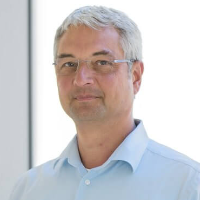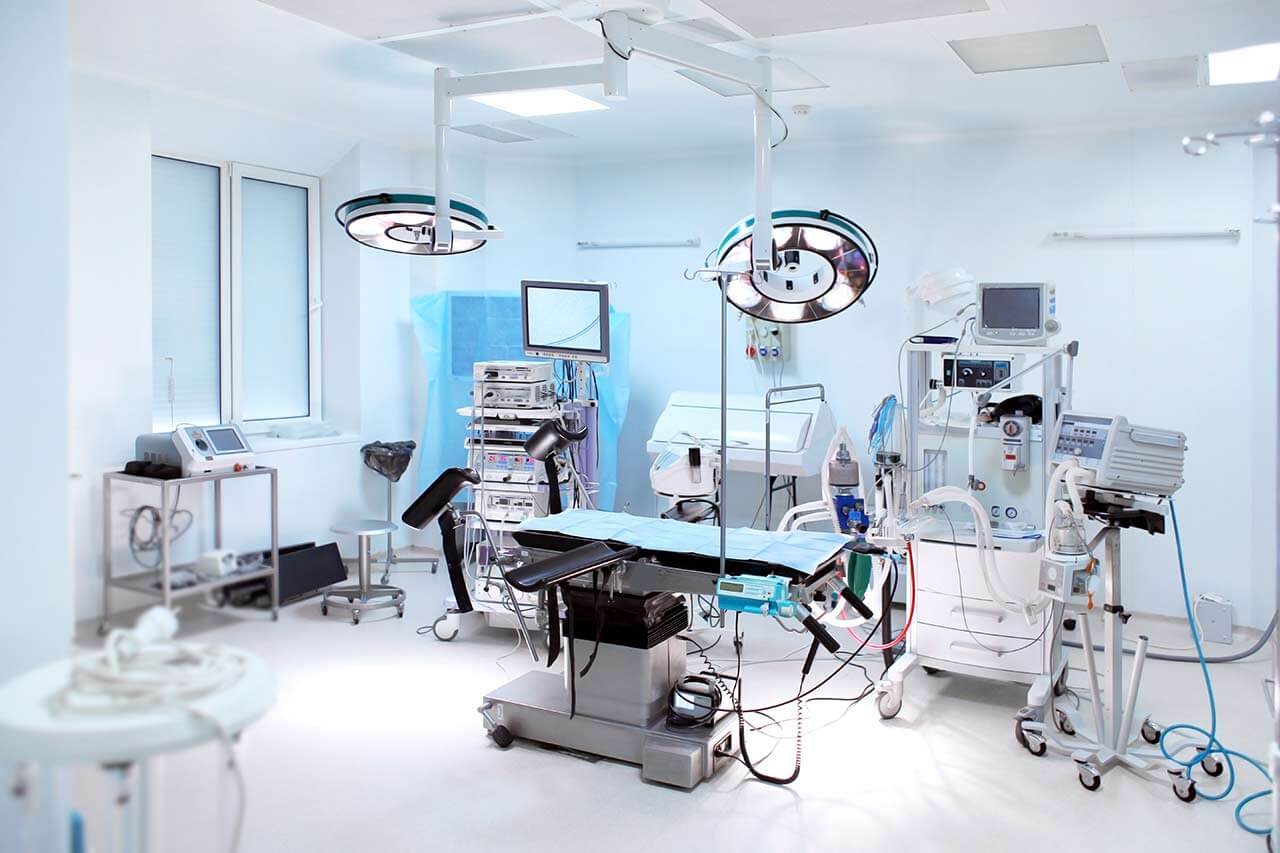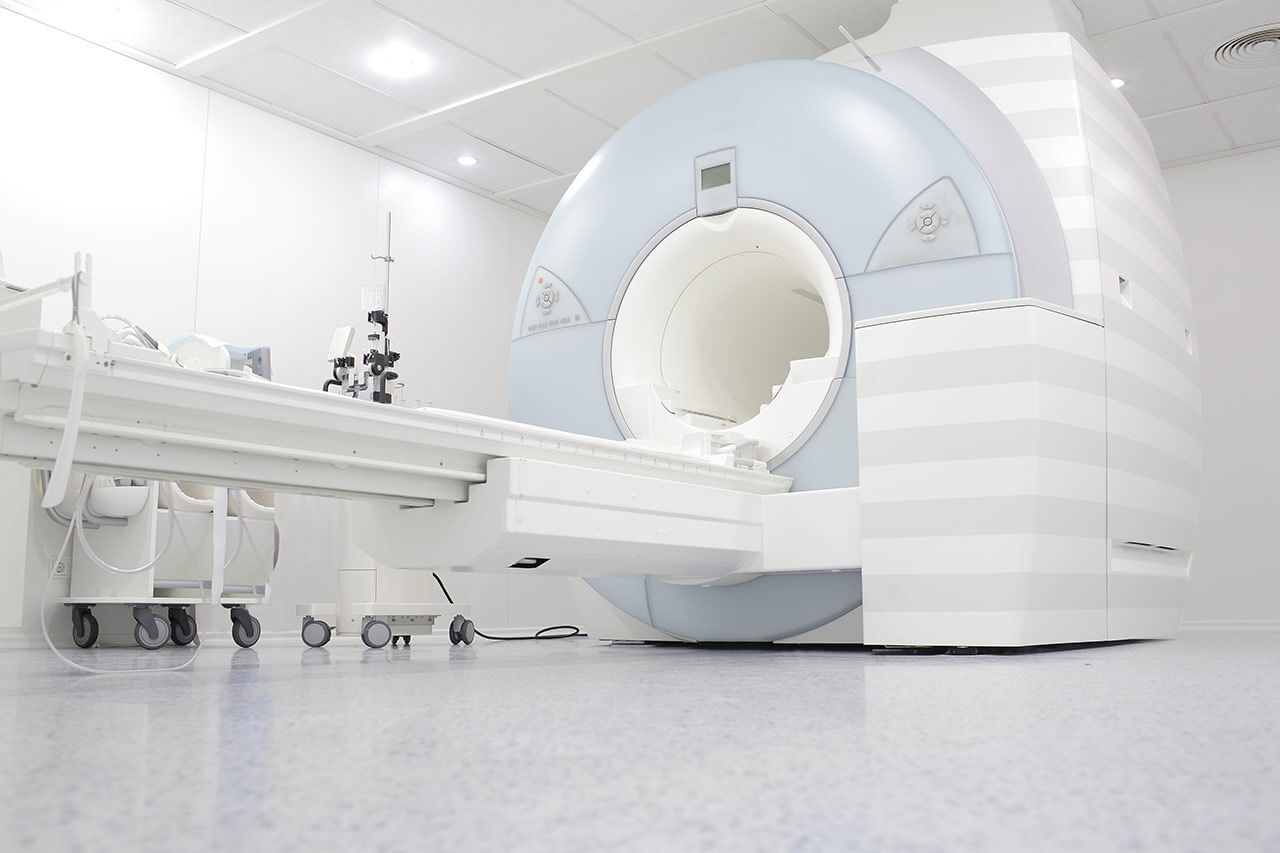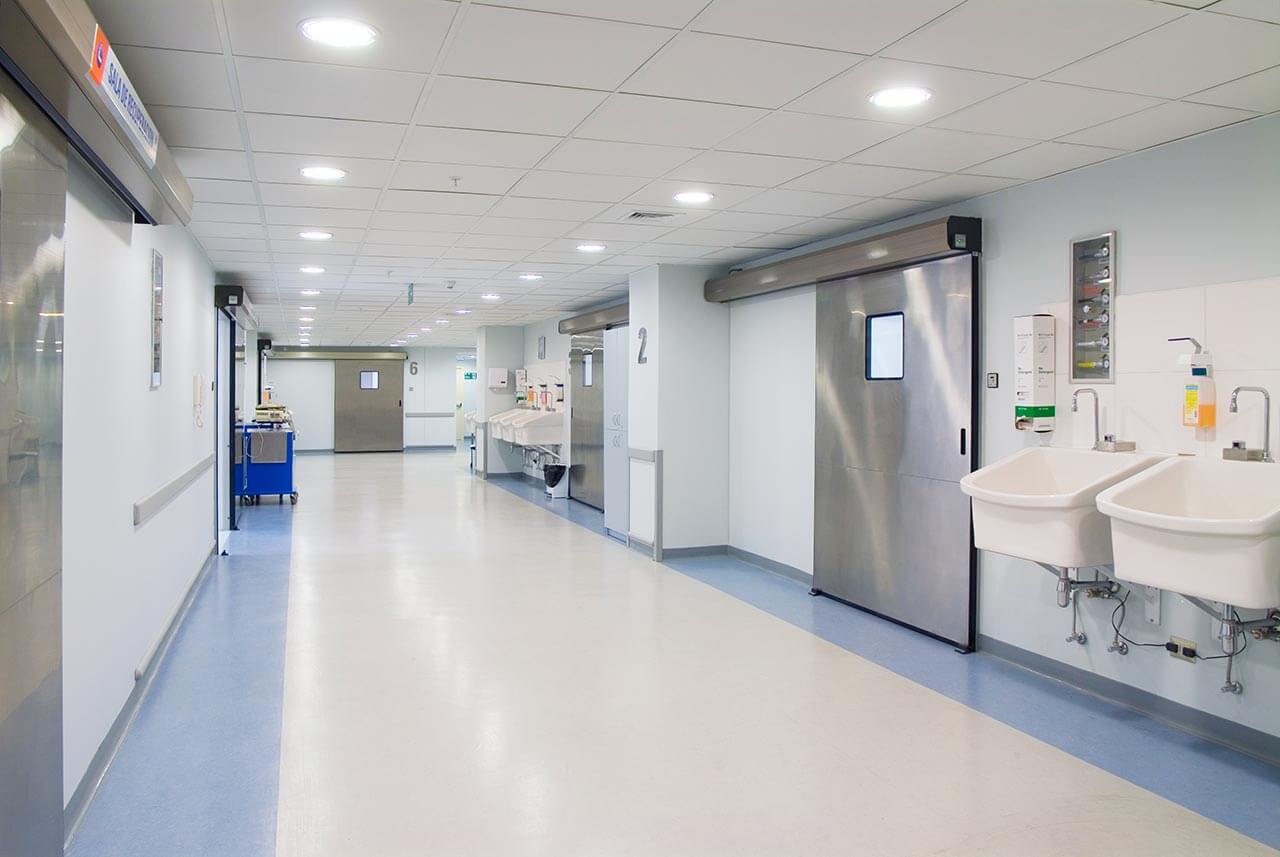
The program includes:
- Initial presentation in the clinic
- history taking
- general clinical examination
- laboratory tests:
- complete blood count
- biochemical analysis of blood
- measurement of hormone levels in blood
- collection of daily urine for hormone analysis
- ultrasound:
- thyroid
- abdomen
- pelvic organs
- adrenal glands
- examination by andrologist/ urologist
- consultation of related specialists
- symptomatic specific treatment
- the cost of essential medicines and materials
- nursing services
- control examinations
- full hospital accommodation
- developing of further guidance
Required documents
- Medical records
Service
You may also book:
 BookingHealth Price from:
BookingHealth Price from:
About the department
The Department of Pediatric Traumatology and Surgery at the University Hospital Halle (Saale) offers a full range of highly precise diagnostics and effective treatment for children and adolescents from 0 to 16 years of age. The department's specialists focus on young patients with traumatic injuries of any severity, bone cysts, pectus excavatum, congenital and acquired diseases of the urinary system and genitals in boys, vascular malformations, and benign and malignant tumors. In cooperation with doctors from the Department of Neonatology and the Department of Obstetrics, comprehensive care is provided for newborns and premature infants with congenital malformations and acute emergency conditions. The department's team of pediatric surgeons in the department prefers minimally invasive surgical techniques and many minor surgical procedures are performed on an outpatient basis. Young patients are treated in accordance with the requirements of the German Society of Pediatric Surgery (DGKCH) and the German Trauma Society (DGU). The specialists of the medical facility always devote sufficient time to consulting young patients and their parents, providing detailed information about the specifics of the upcoming treatment. The Head Physician of the department is Prof. Dr. med. Martin Kaiser.
In the area of pediatric traumatology, the department provides comprehensive medical care for young patients with fractures (including growth plate fractures), ligament sprains, and burn injuries. An important area of work for the department's specialists is the treatment of knee joint injuries, with particular emphasis on cruciate ligament and meniscus injuries. The department uses conservative treatment or arthroscopic procedures to treat knee injuries. This depends on the complexity of the clinical case.
The department's pediatric surgeons have unique expertise in the diagnosis and treatment of vascular neoplasms and vascular malformations. The most common vascular tumor in children is a hemangioma, a benign tumor formed from blood vessels. In most cases, hemangiomas in children are not dangerous from a medical point of view, but in open areas of the body, on the face and neck, they become a cosmetic defect. Hemangiomas are mostly congenital and are formed during the intrauterine development of the child. Treatment tactics are determined depending on the size, shape, and location of the tumor, the general condition of the young patient, and the presence or absence of concomitant pathologies. For example, doctors can perform laser removal of hemangiomas, cryodestruction, electrocoagulation, sclerotherapy, or embolization. It is important that the above methods not only allow doctors to effectively remove a hemangioma, but also provide the best aesthetic results.
The therapeutic offer of the department is completed by the surgical treatment of urological diseases in children. The department's surgeons operate on young patients with enuresis (urinary incontinence), bladder emptying disorders, phimosis, varicocele, hydrocele, testicular torsion, cryptorchidism, hydronephrosis, megaureter, urethral valves, ureteral stenosis, ureterocele, duplicated kidneys, bladder exstrophy, urinary tract tumors, and other pathologies. Surgical procedures are performed using minimally invasive techniques, often on an outpatient basis.
The department's main clinical activities are as follows:
- Surgical treatment of injuries of any severity: bone fractures (including growth plate fractures), sprains, meniscal injuries, and burns
- Surgical treatment of vascular neoplasms and vascular malformations
- Surgical treatment of congenital and acquired diseases of the genitourinary system in boys and girls
- Surgical treatment of congenital diseases and emergency conditions in newborns and premature infants
- Surgical treatment of bone cysts
- Surgical treatment of benign and malignant tumors
- Surgical repair of pectus excavatum
- Treatment of complex regional pain syndrome
- Other medical services
Curriculum vitae
Prof. Dr. med. Martin Kaiser has been the Head Physician of the Department of Pediatric Traumatology and Surgery at the University Hospital Halle (Saale) since 2018. The specialist also heads the Department of Pediatric Traumatology at the Traumatology Clinic Bergmannstrost Halle (Saale) and heads the Centre for Pediatric Surgery Halle (Saale)/South Saxony-Anhalt at the St. Elizabeth Hospital.
Prof. Kaiser studied medicine at the University of Freiburg. In 1992, he defended his thesis on the subject: "Meniscus suturing. Results of postoperative clinical monitoring and ultrasound scans". The doctor received his medical license in 1993, after which he worked for 1 year in the fields of surgery, orthopedics, and internal medicine, passed the third state examination, and completed his internship in Luebeck. In 2002, board certification followed, and in 2010, Dr. Martin Kaiser defended his doctoral dissertation on the subject: "Results of different types of intramedullary elastic stable osteosynthesis for diaphyseal spiral femoral fractures – biomechanical studies on an artificial bone model" and received his Venia legendi. The specialist has been an Extraordinary Professor for Pediatric Surgery at the University of Luebeck since 2015. Before moving to Halle, Prof. Kaiser held the positions of Senior Physician and Deputy Head of the Department of Pediatric Surgery at the University Hospital Schleswig-Holstein in Luebeck.
Prof. Kaiser's key clinical interests include the treatment of injuries of any severity in children, minimally invasive surgical procedures in children, the treatment of complex vascular malformations (hemangiomas, lymphangiomas, and atrioventricular malformations), and the treatment of bone cysts.
Memberships in Professional Societies
- German Society for Pediatric Surgery (DGKCH).
- German Society for Orthopedics and Trauma Surgery (DGOU).
- German Trauma Society (DGU), responsible for pediatric trauma surgery.
- German Society for Orthopedics and Orthopedic Surgery (DGOOC).
- German Society of Surgery (DGCH).
- German Interdisciplinary Society for Vascular Anomalies (DiGGefa).
- Professional Association of German Surgeons (BDC).
Photo of the doctor: (c) Universitätsklinikum Halle (Saale)
About hospital
According to the prestigious Focus magazine, the University Hospital Halle (Saale) is one of the best medical institutions in Germany!
The history of the hospital goes back more than 300 years, and during this time it has managed to gain an excellent reputation not only in Germany, but also throughout the world. The hospital positions itself as a specialized healthcare facility for the treatment of severe and rare diseases and injuries. The hospital provides medical care to patients of all ages in compliance with the latest scientific achievements. The hospital is distinguished by successful research activities, especially in the field of cardiovascular diseases and oncopathologies – the specialists in these areas have made significant contributions to the development of the very latest diagnostic methods and therapeutic approaches.
The University Hospital Halle (Saale) has 30 specialized departments representing almost all areas of modern medicine, as well as 17 narrowly focused institutes. About 35,000 patients receive qualified medical care of European standards in the hospital every year, and more than 212,000 patients are served on an outpatient basis. This number of patients is evidence of the high efficiency of medical services and the excellent image of the hospital in the international medical arena; patients from all over the world regularly seek medical attention here.
Some of the hospital's structural units deserve special attention. For example, the Central Emergency Department (the largest in Saxony-Anhalt), modern dental clinics, the Perinatal Center, and the Transplant Center, which has a history of more than 40 years. The Transplant Center performs more than 40 kidney transplants annually, most of them from living donors.
Thanks to the use of the latest medical technologies and the availability of state-of-the-art equipment, many previously high-risk surgeries and procedures can now be performed in the hospital using sparing techniques. In this context, hybrid cardiac surgery and robotic surgery using the innovative da Vinci Si® system in urology are worthy of mention.
An integral part of the successful clinical practice of the University Hospital Halle (Saale) is the availability of experienced and competent medical staff. The total number of employees at the hospital is more than 4,450. Many physicians are known far beyond the borders of Germany: they regularly conduct important research that enables the development of modern medicine. In addition, the hospital specializes in training medical students, so qualified doctors and professors are willing to pass on their experience to the younger generation.
The hospital has many quality certificates such as DIN EN ISO 9001:2015 certificate, German Cancer Society (DKG) certificate, JACIE certificate, EndoCert certificate, ClarCert certificate, German Spine Society (DWG) certificate, German Trauma Society (DGU) certificate, CERT iQ certificate, LGA InterCetert certificate, and others.
Photo: (с) depositphotos
Accommodation in hospital
Patients rooms
The patients of the University Hospital Halle (Saale) stay in comfortable single, double, and triple rooms with a modern design. All patient rooms have an ensuite bathroom with a toilet and a shower. The standard patient room includes a comfortable automatically adjustable bed, a bedside table, a wardrobe, a table and chairs for receiving visitors, a TV, a radio, and a telephone. The patient rooms have access to Wi-Fi. For safety reasons, the use of laptops and cell phones is prohibited in some areas, including the intensive care units. The hospital also offers enhanced-comfort patient rooms.
Meals and Menus
The hospital offers delicious and well-balanced meals three times a day: breakfast, lunch, and dinner. Patients and their companions can choose from three daily menus, which always include dietary dishes. If necessary, an individual menu can be prepared for the patient. Children are offered a special menu with healthy and tasty dishes, rich in nutrients necessary for a growing body.
Further details
Standard rooms include:
![]() Toilet
Toilet
![]() Shower
Shower
![]() Wi-Fi
Wi-Fi
![]() TV
TV
Religion
Religious services are available upon request.
Accompanying person
Your accompanying person may stay with you in your patient room or at the hotel of your choice during the inpatient program.
Hotel
Your accompanying person may stay with you in your patient room or at the hotel of your choice during the inpatient program.




